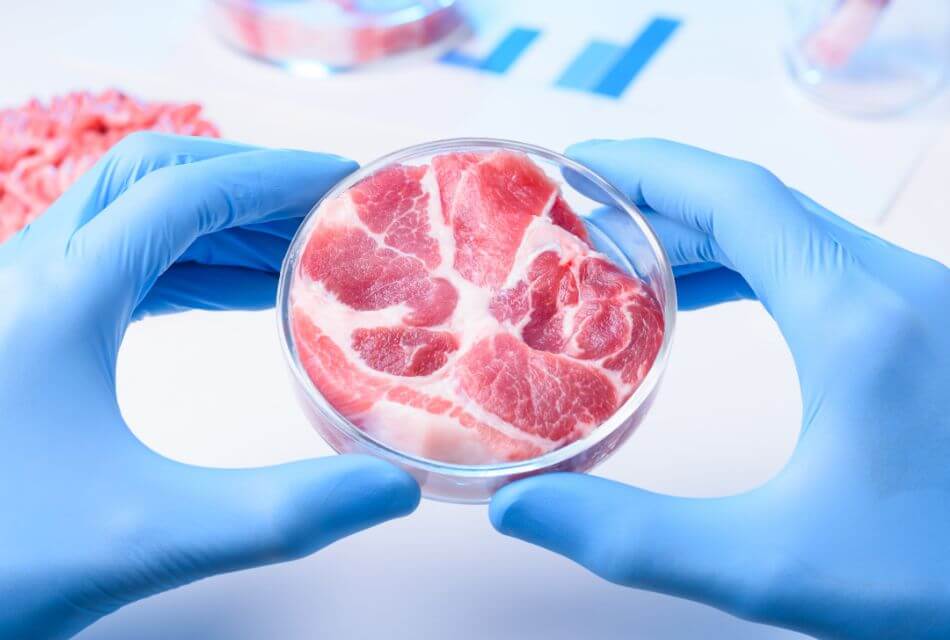Global per capita meat consumption will continue to increase at a rate of 1% per year until 2025, and it is not likely to stop.
According to the OECD-FAO (Organisation for Economic Co-operation and Development and the Food and Agriculture Organization of the United Nations) Agricultural Outlook 2021 report, global meat protein consumption is projected to increase steadily to 14% by 2030, driven by population growth.
Research into mass production processes for cultured meat is emerging in this context as a response to this demand and to the growing trend of consumers aware that the production of the meat needed to supply the global market necessarily involves the slaughter of animals and, moreover, generates side effects that damage the health of the planet.
But things are changing.
Currently, cultured meat is already legal and is marketed normally in countries such as Singapore, and in our country, there are up to eight laboratories that in 2021 began research projects for the development of which they are participating in a grant from the Ministry of Science, close to four million euros.
In fact, Spanish companies have drawn up a business plan with the aim that at least 30% of the meat marketed in 2040 will come from laboratory cultures.
What specifically is cultured meat?
Cultured meat, also known as “in vitro meat”, is meat made in a laboratory and comes from an animal because it is made from the same tissue that makes up the muscle groups of animals.
The procedure is simple, the first cells used to develop animal meat are obtained from a biopsy of the animal whose tissue is to be reproduced. Normally, muscle is chosen because it is the part of the body that contains the highest nutritional values, proteins of high biological value and all the amino acids necessary for the proper functioning of the organism.
The selected cells are placed in a favourable environment for the growth of the culture, facilitating its maturation in order to create a culture, i.e.: cultured meat, a meat that is cooked in the same way as traditional meat and has a very similar colour, flavour and texture.
This is a process that will be more familiar to us if, instead of cultured meat, the resulting product is, for example, yoghurt, also treated, in this case with bacteria, in the laboratories of the production plants in order to generate the processes that end up leading to the final product that reaches the supermarket shelves.
Cultured meat, which according to several studies could even be healthier than traditional meat, provides an environmental benefit and facilitates a more ethical consumption of animal protein because it does not require the slaughter of animals.
Cultured meat thus becomes an alternative for people who follow a vegetarian or vegan diet because they reject animal suffering, or for those who have chosen a diet that excludes animal protein to protect the environment.





